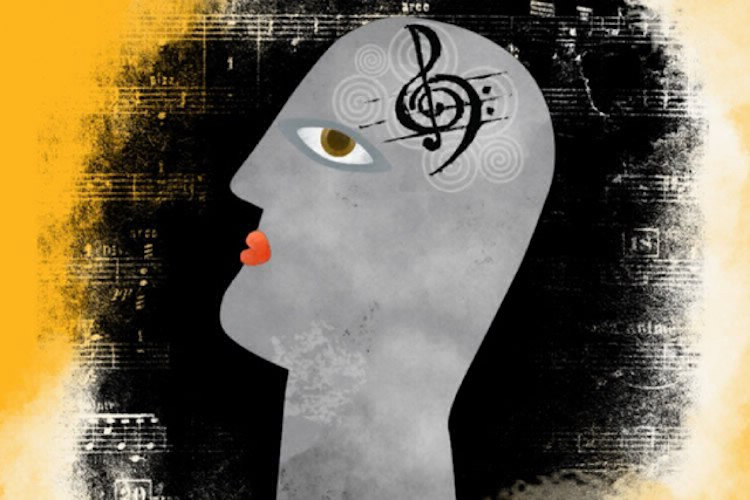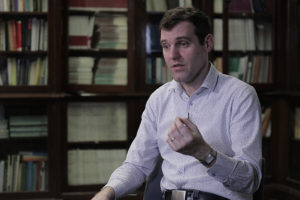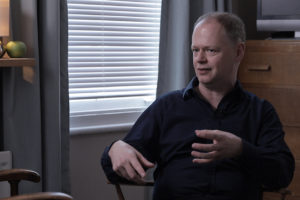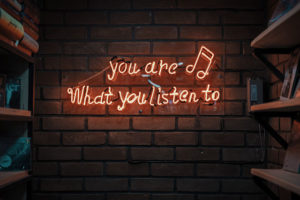Climate Observations
Meteorologist Chris Brierley on the first measurements of climate, weather forecasts and how can we double che...

Music is a fundamental part of our daily lives. We encounter it so many times just across a normal day: for example, listening on our phone, as background music in shops or cafes or alongside television programs, or in the gym when we are exercising. Because of this, music is something that we start to take for granted at times. But in fact, music can be an incredibly powerful tool that we can use to help us with our emotions and to manage stress in particular.
There are lots of studies showing both the short-term benefits of emotions themselves, but then also there are sort of medium-term benefits on our mood, these most stable states, and also the longer-term benefits on our mental health. If we’re considering our emotions, that short-term response, then there are different “strategies” by which music can regulate our emotions. For example, music could help to distract us from the daily stresses in our lives; it could help us to suppress any negative emotions we might be feeling; it could also help us almost in a cathartic way to discharge any negative emotions (for example, from singing or playing instruments). It can also help in terms of making us feel more in control of a situation: for example, boosting our self-esteem and making us feel more confident about ourselves, so smaller things in our lives don’t seem so significant. These strategies are all known as “emotion regulation strategies,” and music is very good at helping us to enable these strategies.
As well as these strategies, there are also specific “mechanisms” by which music affects our emotions. In quite a primitive level we can have what we call a brain stem reflex: so, for example, loud or repetitive beats in music can lead us to synchronize with what we’re hearing. We call this process “entrainment”. We can also have music that can actually induce particular emotions in us: for example, songs that are very jubilant or celebratory can make us feel happier in ourselves. Music might actually induce visual imagery: for example, the impressionistic quality of Debussy’s La Mer can remind us of water, and these images of water might help us to feel calmer.
Following on from the strategies and mechanisms involved in emotional responses to music, we can start to consider the psycho-biological responses. We now know that music can reduce stress levels in terms of psychological perceptions of stress, but it can also help us in terms of reducing biological responses to stress. If we consider stress systems, there are two main biological pathways involved in a stress response. One of these is called the sympathetic nervous system, which is a system of nerves in our body that responds very quickly to stress, and it affects the response of multiple different organs. For example, we often experience increases in our heart rates or our blood pressure, and we also might find the release of hormones such as adrenaline. The other system alongside this is called the hypothalamic-pituitary-adrenal axis, HPA-axis. This is part of our endocrine system or a hormone system, and this leads to a cascade of hormones in response to a stressful situation or events, one of which is called cortisol. This is a very well-known stress hormone.
Lots of studies have been done on music that explores how music might affect these biological responses to stress. We’ve got probably over 70 or 80 studies now on music and stress response. Few of these, I’ve conducted with my colleagues to understand a bit more about what it is about music that affects stress and how this might vary in different contexts.
One of the studies that we ran looked at attending concerts. Many people attend concerts. These are generally pleasurable, relaxing events, but we were particularly interested in the different types of concerts that exist. So do we get different biological responses from attending a classical music concert compared to a pop music concert? And interestingly, we don’t. We’ve actually found decreases in the stress hormone cortisol in response to both of these concert settings. A classical concert might gradually reduce our stress, meaning we feel calmer, and a pop concert might be more of a cathartic process by which we’re experiencing lots of emotions and lots of beats. But in the end, both of them might still help us to feel relaxed.
We’ve also conducted studies looking at the psychological context, so for example, if you are singing in a low-stress condition or singing in a high-stress condition, do you actually have the same biological response, particularly if the music actually stays the same? So we ran some studies with professional singers, and we found that when they sang a nice calming repertoire in a low-stress condition, so just in a group of each other, they had these decreases in the stress hormone cortisol. But when they actually sang exactly the same music in exactly the same setting but just in front of an audience of 700 people, so a much more high-stress situation, they actually had increases in their stress response. This is interesting because it suggests that the same music can actually produce completely opposite biological responses. When we’re considering this, it actually makes us think: well, perhaps it’s not just about features of music; perhaps it’s also about the psychological context in which we perceive that music that affects our biological response.
As soon as we run more controlled laboratory studies, we start to see that there are particular features of music that become more and more important, and certain aspects of musical structure and arousal and how much we like it and how much familiarity we have with it. All of these do affect our emotions in different ways. But in terms of our stress response, it seems that if we’re considering these complex settings like concert halls, then actually, the context itself can override specific qualities of the music.
In these studies, we’ve also found that the responses to music and stress can get stronger over time. We ran some studies looking both at singing and also drumming, and we found that when people do the activities for the first time they don’t necessarily get a very strong relaxation response, perhaps because it’s a new activity; new people. But if they do this multiple times, then we actually can find much stronger responses after a few weeks of getting used to the activity.
It’s not just stress biomarkers that are affected by music. We’ve also looked at studies where we’ve considered cytokines. These are chemical messages in the immune system, and they’re often suppressed by stress hormones such as cortisol. But we found that alongside these reductions in cortisol from listening to and making music, we often find increases in cytokine activity, suggesting that actually, we might have broader biological benefits from listening to and engaging in music when we’re stressed.
This gives us a bit of an insight into how we personally might use music in our daily lives to reduce our stress. But we also see that there can be benefits in particular settings as well; music can be used as a “tool” to help in stressful situations. One of these that many people encounter in their lives is having an operation. Waiting for surgery can be very anxiety and stress provoking, but there have been a lot of studies that have tested music to see if it can be a way of reducing anxiety prior to surgery. What’s been found is that, just like we’ve seen in daily life, music can reduce levels of stress hormones like cortisol. It can also reduce blood pressure and heart rate, and this can actually make us feel more relaxed before the operation, which means that we need lower levels of anesthetic and lower levels of pain medication afterward and we can also potentially even be discharged from the hospital sooner and have higher rates of satisfaction with our care. So overall, this is really exciting because it suggests that as well as music being a nice thing for individuals, it can also be used in healthcare settings to try and reduce these stressful situations and make them slightly more enjoyable for people, even if they have to have something like operation.
As we imagine what the next research questions in this could be, there’s a lot more that we need to understand, particularly about which biological markers are affected by stress. We’ve got indications about multiple different systems being affected, and we’ve got lots of other biomarkers that are also associated with stress that has been shown to change in response to music. But there’s a lot more work that we can do here, particularly to see whether these stress-reducing benefits could actually add up cumulatively and help to reduce the longer-term biological profiles of stress. We also want to know more about this interaction between the features of the music itself versus the features of the context in which we experience it. We need to understand whether there are particular qualities in music that are linked with stress reduction (for example, multiple pieces of research have suggested that features like the speed of the music are really important), but then also how individual factors affect our reception of music (such as our personal backgrounds, memories of people and places, and individual likes and dislikes). So this suggests that we’re not necessarily going to be able to find some magical piece of music that is always going to be stress-reducing for every person, but it suggests that we could actually come to some balance of understanding the particular features of music and also the particular features of individuals that modulate our levels of stress.

Meteorologist Chris Brierley on the first measurements of climate, weather forecasts and how can we double che...

Linguist David Adger on the Facebook chatbots experiment, the history of getting the AI to understand and spea...

Neuroscientist Diana Omigie on what musical taste is, how our musical preferences are formed and what can chan...